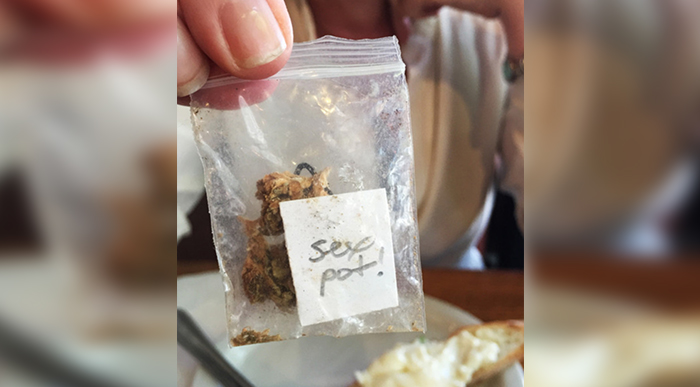The wild west showdown between California's Bureau of Cannabis Control (BCC) and the popular online dispensary finder Weedmaps continued this week, with executives at the weed-focused tech company pushing back against a cease and desist letter sent by Golden State pot czar Lori Ajax last month.
According to concurrent reports from the Sacramento Bee and Marijuana Business Daily, Weedmaps CEO Doug Francis and President Chris Beals flatly rejected Ajax's demand to remove any advertisements for California dispensaries without proper BCC licensing from their site. In a letter addressed to Ajax, the Weedmaps honchos claimed that, because the website itself does not sell cannabis, it is not subject to the agency's regulatory restrictions. Additionally, Francis and Beals cited the federal Communications Decency Act, a law that has successfully protected tech companies like Twitter and Facebook from accepting legal responsibility for user-generated content.
"We note at the outset that Weedmaps is a technology company and an interactive computer service which is subject to certain federally preemptive protections under Section 230 of the Communications Decency Act and is also not a Licensee subject to the Bureau's purview pursuant to the Medical and Adult-Use Cannabis Regulation and Safety Act (MAUCRSA) or State regulations," Francis and Beals' letter states.
After those introductory rebukes, and an argument that a significant number of the unlicensed dispensaries are still legally operating under the state's medical marijuana initiative, the dispensary directory execs continued to fire shots at Ajax and the BCC. They chided both state and municipal regulators for moving too slowly to integrate existing Golden State canna-businesses into the regulated market, and for squeezing out small-time operators with heavy taxes and operating fees.
"We are concerned that the future for California's cannabis industry may become even more grim," the letter continues. "Large Canadian operators with access to public capital markets are raising money and deploying it into the California market to gain market control while native California licensees operate under a regulatory landscape that is so blurry it stifles investment. Long standing single location dispensaries are seeking to prevent additional unlicensed retailers from gaining licensure while not realizing that surrounding dispensary licenses are being consolidated by large family offices and investment funds who have little interest in responsible growth of the industry."
While the BCC's original cease and desist letter claimed that Weedmaps' disregard for dispensary licensing was unfair to fully permitted operators who have already jumped through the difficult, costly hoops necessary to operate in the state's legal market, Weedmaps executives quickly turned the optics back on regulators, painting the state agency as a shill for corporate interests not looking out for the Golden State's legacy ganjapreneurs.
"In short, the only way to effectively deal with California's 20-year history of cannabis legalization is to invite incumbent unlicensed operators into the light to be licensed," Francis and Beals' letter concludes. "To provide them opportunities to operate a legally compliant business or to be shutdown. To enable small business owners that rely on this industry to feed their children or pay their mortgage an opportunity to survive."
Still, outside of any larger philosophical arguments about who should have access to California's burgeoning industry, Ajax's original cease and desist letter, sent last month, clearly threatened both civil and criminal action against Weedmaps if they did not remove unlicensed ads. Regardless, the company is calling the BCC's hand.
In interviews with two seperate cannabis lawyers, Marijuana Business Daily found conflicting opinions on how the case might be handled in court, with one attorney siding with Weedmaps' claims that they are outside of the BCC's purview, and another arguing that "all" commercial cannabis activity is the agency's business, including Weedmaps' directory. And if Ajax isn't successful in California, lawyer Omar Figueroa told Marijuana Business Daily, she could always ask the feds to step in — a drastic measure for a state currently considering legislation to block any state agencies from assisting federal authorities in prosecuting legal weed businesses.
"The worst-case could be the feds come in at the behest of the state because [Weedmaps is] just being defiant and refusing to obey California law," Figueroa said.
For now, the ball is in Ajax and the BCC's court, but as of press time they had yet to respond to or comment on Weedmaps' letter.
Follow Zach Harris on Twitter











